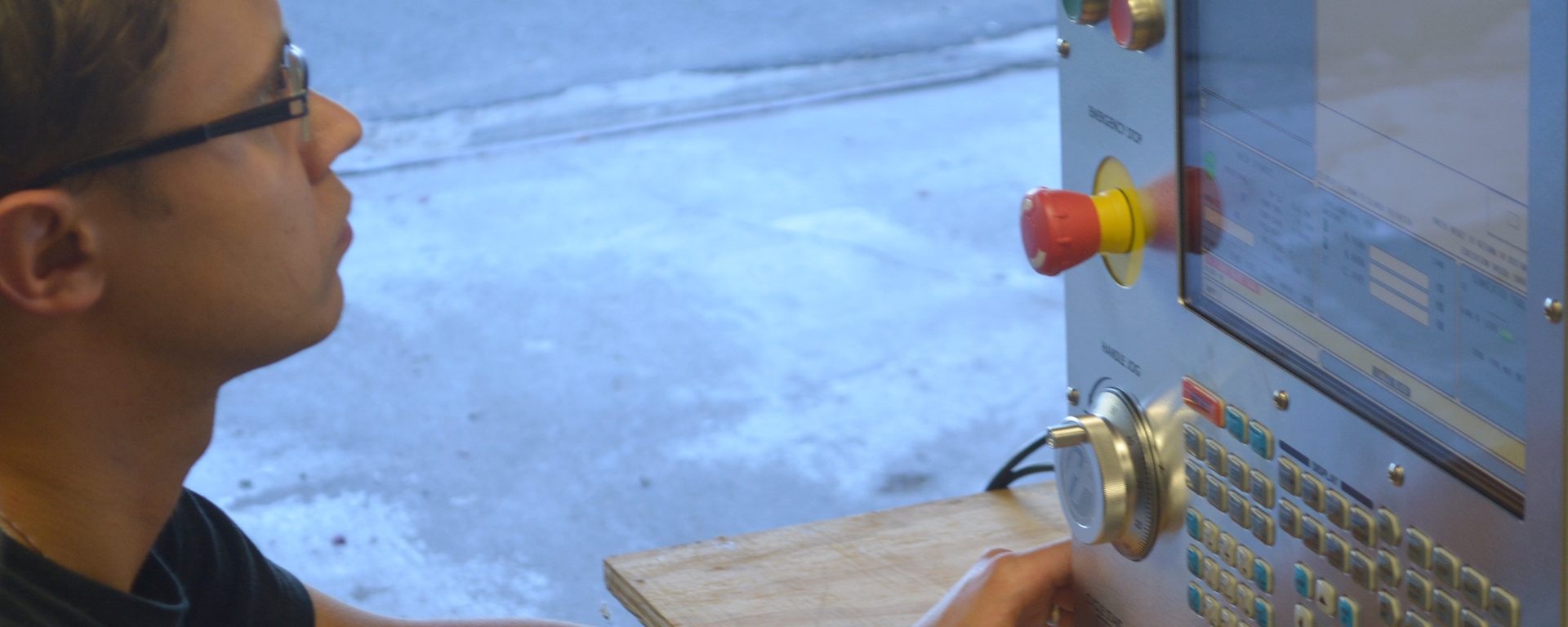Manufacturing is evolving. Modern manufacturing companies are adapting advanced systems and equipment that is controlled by computers, which is where CNC machining comes into play. This method – computer numerically controlled (CNC) machining – is reshaping the world of manufacturing as we know it. It continues to sharpen and accelerate the industry. With this increased need for speed comes the need for innovative and highly skilled workers.
If you are looking for a hands-on career that gives you tangible results at the end of your workday, you may be interested in a career in the CNC field. CNC careers are on the rise. But there are many different titles within this field. Which one is right for you? You may be curious to know the differences of CNC machinist vs. CNC operator, or CNC machinist vs. programmer. Read on, as we highlight these roles and share the paths to achieving each career title.
CNC Machinist vs. Operator
For many organizations, there isn’t much of a difference when it comes to the role of a CNC machinist and CNC operator. In fact, the two terms are sometimes used interchangeably. Machinists and operators typically share very similar responsibilities and duties. Both roles involve setting up and running CNC machines to create and alter products. Of course, their exact job descriptions and titles can vary between different companies.
There are some subtle differences between CNC machinists and CNC operators worth noting. Among those in the field, CNC operators are considered more entry-level workers. CNC machinists, on the other hand, tend to have a bit more experience and advanced skills. Within many organizations, CNC operators work under the direction of CNC machinists. CNC machinists, in their own rite, do not need to be supervised while operating equipment.
Some of the responsibilities of a CNC operator, at the entry level, include:
- Help load materials (like metals and plastics) into machines
- Calculate the amount of material to feed into machine
- Determine cutting path
- Adjust the operating speed of machine as it runs
- Inspect item (after cutting) for quality and accuracy
- Clean and maintain equipment
- Help troubleshoot mechanical or quality issues
CNC Machinist vs. CNC Programmer
The basics of CNC machining start with the CNC programmer. Afterall, this is the person who develops the programs and instructions needed to operate CNC equipment! This professional may also set up, operate, or maintain equipment.
In order to create programs for CNC machinery, CNC programmers must be able to read blueprints and 3D computer designs in order to understand the specifications for any given part. Programmers must also make calculations to determine how much material is needed, the speed at which is should be fed into the machine and cut, where certain patterns (I.e. holes) need to be placed, and so on. One these important specifics are determined, CNC programmers then code the details into numbered, sequential instructions for a machine – and CNC machinist – to follow.
Since the role of CNC programmer is so important, these professionals tend to earn a higher salary than machinists and operators. According to the U.S. Bureau of Labor Statistics, some of the top paying industries for this industry include:
- Aerospace Product and Parts Manufacturing (top pay at $84,750)
- Veneer, Plywood, and Engineered Wood Product Manufacturing
- Management of Companies and Enterprises
- Scientific Research and Development Services
- Printing and Related Support Activities
Once the CNC programmer’s work is complete, the CNC machinist may take over and make that vision a reality. At some organizations, the machinist may take on the responsibility of programming the instructions into the machinery and equipment. When this isn’t the case, the programmer works directly with the machinist to get it all set up.
Breaking into the Industry
If you’re just getting started on this new path in the CNC field, you will likely start out as a CNC operator. This role will give you the proper hands-on training and experience needed to gain proficiency in machine operation and familiarize you with the basics of CNC machining. Of course, this is not the only path to take when breaking into this industry.
More and more manufacturers today are looking for highly skilled workers with postsecondary training and education. This is where a degree or certificate in CNC machining proves quite useful. While a degree isn’t necessarily required to break into this field, the Connecticut Business and Industry Association finds that it is encouraged among hopeful machinists today. According to the CBIA, “For the most part, manufacturers expect new employees to arrive already trained.”
Even without a required degree or certification, pursuing a CNC machining program is a wise investment for a successful career. At a career-focused manufacturing school like Goodwin University, your hands-on training with cutting edge technology and interactive education from skilled, industry-expert professors will prepare you for the journey ahead. Not only will you acquire the skills that manufacturing employers today are seeking, you will also stand out among the competition.
Want to learn more about a career in the CNC field? Call Goodwin University today at 1-800-889-3282. Or, explore our CNC Operator School online.
Goodwin University is a nonprofit institution of higher education and is accredited by the New England Commission of Higher Education (NECHE), formerly known as the New England Association of Schools and Colleges (NEASC). Goodwin University was founded in 1999, with the goal of serving a diverse student population with career-focused degree programs that lead to strong employment outcomes.

